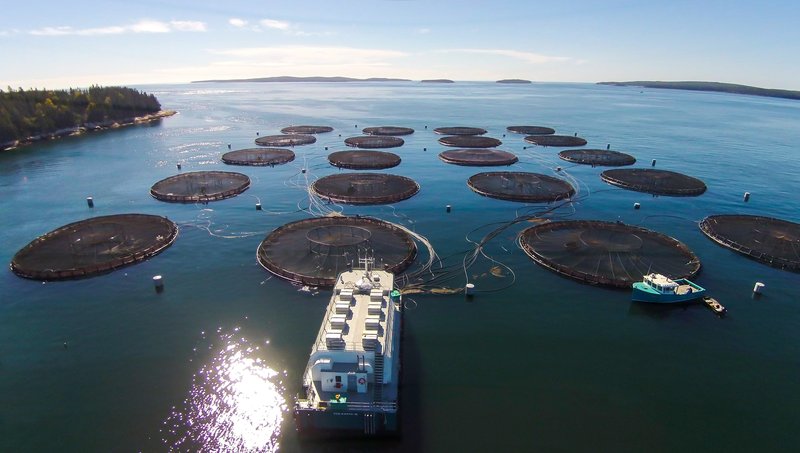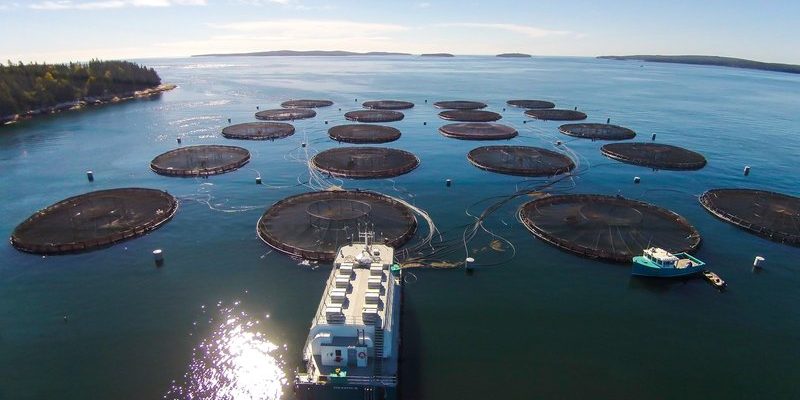
Farming salmon isn’t as straightforward as it sounds. Different states have unique rules when it comes to aquaculture—fancy talk for fish farming. It’s a bit like driving: just because you can drive a car doesn’t mean you can drive it anywhere. Some states are friendly to salmon farms, while others have stricter regulations or outright bans. So, let’s explore the ins and outs of salmon farming across the U.S., looking at what makes it legal in some areas and not in others.
What Is Salmon Farming?
Salmon farming, also called aquaculture, involves raising salmon in controlled environments, often in large ocean pens. Think of it like having a mini-ecosystem where salmon can grow until they’re ready for harvest. Unlike catching fish in the wild, which can be unpredictable, salmon farming offers a more consistent supply of fish. This is particularly important as the demand for salmon continues to rise.
Farming salmon helps meet this demand, making it a popular choice among fish farmers. However, the practice has raised various environmental and ethical questions. For example, when salmon are raised in pens, there’s a chance of disease spreading or pollution affecting local waters. Each state considers these factors when developing regulations around salmon farming.
Which States Allow Salmon Farming?
Not every state gives the green light to salmon farming, and the laws can differ greatly. States like Maine, Washington, and Alaska are known for their active salmon farming industries. Here, the combination of natural resources, favorable ocean conditions, and established markets makes it a practical venture.
In contrast, states like California and Florida have imposed stricter regulations on salmon farming, largely due to environmental concerns and the potential impact on wild fish populations. Some states may allow farming but require specific permits or licenses, adding an extra layer of complexity. It’s important to understand the local laws if you’re considering venturing into salmon farming.
Regulations Vary by State
State regulations on salmon farming can include several factors. Here are a few key points that often come into play:
- Permits: Most states require farmers to obtain permits to operate. This process ensures that they’re following environmental and health guidelines.
- Environmental Impact: Some states conduct thorough reviews of the potential environmental impact before granting permission. This may involve public consultations.
- Species Restrictions: Interestingly, not all salmon species are treated equally. Some states may allow certain types of salmon to be farmed while restricting others.
Understanding these regulations helps ensure that salmon farming is done responsibly. It’s all about balancing economic benefits with environmental health.
Environmental Concerns
One of the biggest discussions around salmon farming revolves around the environment. Here’s the thing—while farming can help meet demand, it can also lead to issues like water pollution and disease outbreaks.
When salmon are raised in pens, their waste can accumulate, potentially harming the surrounding ecosystem. Additionally, farmed salmon can escape into the wild, posing a risk to local fish populations. This leads to the need for strict regulations to manage these impacts. Some states are more proactive about protecting wild ecosystems than others, which influences their stance on salmon farming.
Alternatives to Salmon Farming
If you’re exploring fish options, salmon isn’t your only choice. There are several alternatives you might consider:
- Tilapia: Known for its mild flavor and fast growth, tilapia farming is widely allowed and has a smaller environmental footprint compared to salmon.
- Catfish: Another popular farmed fish, catfish thrive in freshwater environments and are commonly raised across the U.S.
- Trout: Often farmed in colder regions, trout is another viable option for aquaculture enthusiasts.
These alternatives can provide similar benefits without some of the challenges associated with salmon farming. Exploring these options can be beneficial, especially if local regulations are tight.
The Future of Salmon Farming in the U.S.
The future of salmon farming in the U.S. is evolving. As demand for seafood continues to rise, there’s a growing interest in sustainable practices. Innovations in aquaculture technology are being explored to minimize environmental impacts. For instance, closed containment systems can reduce waste and limit interactions with wild fish populations.
States that embrace sustainable practices might find their salmon farming industries booming. People are becoming more conscious about where their food comes from, leading to a preference for responsibly farmed fish. This shift could lead to more states revisiting their regulations, potentially opening up new opportunities for salmon farming.
So, are salmon legal to farm in all states? Not quite. The rules vary from state to state, with some welcoming salmon farms and others placing strict regulations or outright bans. Understanding these regulations plays a vital role in responsible aquaculture.
As more people become aware of the environmental impact of their food choices, the future of salmon farming will likely see changes aimed at sustainability. Whether you’re considering farming salmon or just want to know more about it, staying informed is key. Exploring the depths of this topic can help you appreciate where that delicious salmon on your plate originates and how its journey can impact our world.

